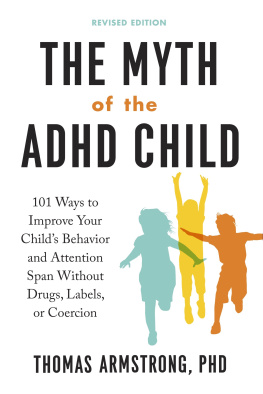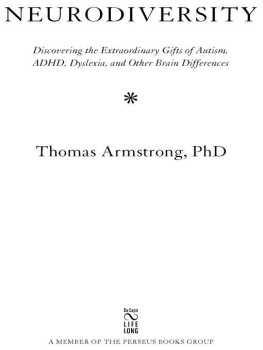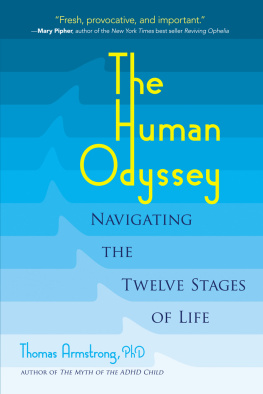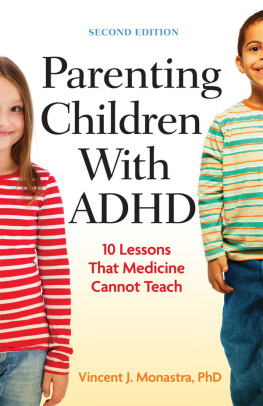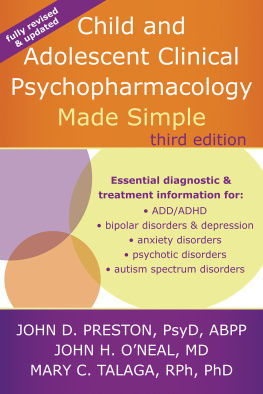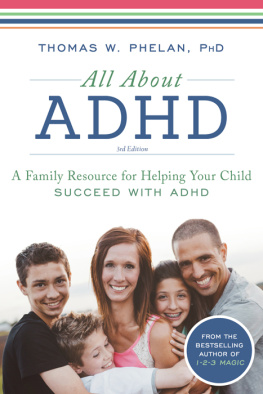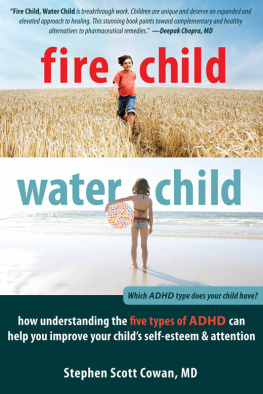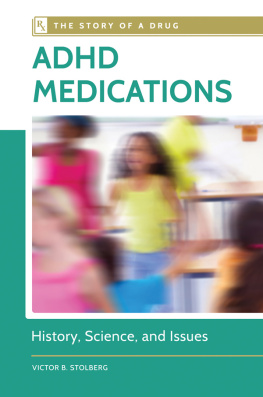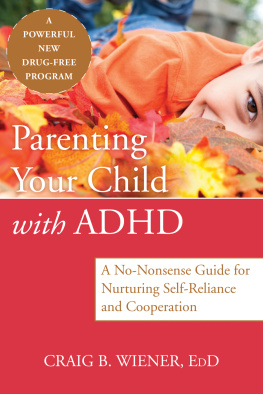Praise for The Myth of the ADHD Child, Revised Edition
At a time when ADHD and the medications used to treat it are growing by leaps and bounds, Thomas Armstrong asks parents to think critically about the ADHD diagnosis, to value the uniqueness of their childrens different rhythms of learning, attending, and behaving, and to appreciate and use the wide range of non-drug strategies that are out there to help their kids prosper in school and flourish in life.
Michele Borba, EdD, bestselling author of The Big Book of Parenting Solutions, Building Moral Intelligence, and UnSelfie: Why Empathetic Kids Succeed in Our All-About-Me World
Parents everywhere should read this book, not just those with kids diagnosed with ADHD! Thomas Armstrong presents a wealth of strategies, ideas, tips, and resources that will help parents nurture kids who feel good about themselves, who have skills for coping with lifes challenges, and who practice learning strategies that will help them succeed in the classroom and beyond. I wholeheartedly recommend The Myth of the ADHD Child!
Jack Canfield, coauthor of the bestselling Chicken Soup for the Soul series and The Success Principles
... absolutely essential reading for parents, teachers, and others concerned with children who struggle. Armstrong provides a lucid and comprehensive response to the tragic overuse of medication for Americas children. Bursting the myths of an established brain deficit, a single cause, and long-term effectiveness of drugs, Armstrong discusses parental options with compassion.
L. Alan Sroufe, PhD, professor emeritus of child psychology, Institute of Child Development, University of Minnesota
This is a fabulous book. Not only does Armstrong explain with balance and clarity the evidence-based problems associated with the concept of ADHD; he also provides a wealth of practical ideas, resources, and approaches to help the parents of any kid who is presenting with challenging behavior, especially those who have or might attract a diagnosis of ADHD. Professionals and parents alike will benefit enormously from reading this.
Sami Timimi, MD, consultant in child and adolescent psychiatry, Lincolnshire Partnership NHS Foundation Trust; visiting professor of child psychiatry and mental health improvement, University of Lincoln
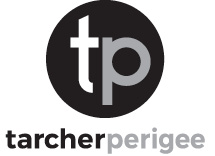
An imprint of Penguin Random House LLC
375 Hudson Street
New York, New York 10014
First published under the title The Myth of the A.D.D. Child by Dutton, a member of Penguin Putnam Inc. 1995
This revised edition published by TarcherPerigee 2017
Copyright 1995, 2017 by Thomas Armstrong
Penguin supports copyright. Copyright fuels creativity, encourages diverse voices, promotes free speech, and creates a vibrant culture. Thank you for buying an authorized edition of this book and for complying with copyright laws by not reproducing, scanning, or distributing any part of it in any form without permission. You are supporting writers and allowing Penguin to continue to publish books for every reader.
TarcherPerigee with tp colophon is a registered trademark of Penguin Random House LLC.
Library of Congress Cataloging-in-Publication Data
Names: Armstrong, Thomas, author.
Title: The myth of the ADHD child : 101 ways to improve your childs behavior and attention span without drugs, labels, or coercion / Thomas Armstrong, PhD.
Other titles: Myth of the A.D.D. child | Myth of the attention-deficit hyperactivity disorder child
Description: Revised edition. | New York, New York : A TarcherPerigee Book,
[2017] | Revision of: Myth of the A.D.D. child. 1995. | Includes bibliographical references and index.
Identifiers: LCCN 2016056894 (print) | LCCN 2017001964 (ebook) | ISBN 9780143111504 (paperback) | ISBN 9781101992807 (ebook)
Subjects: LCSH: Attention-deficit hyperactivity disorderDiagnosisMoral and ethical aspects. | Behavior disorders in childrenTreatment. | Child rearing. | Attention-deficit hyperactivity disorderTreatmentMoral and ethical aspects. | Problem childrenBehavior modification. | BISAC: FAMILY & RELATIONSHIPS / Children with Special Needs. | FAMILY & RELATIONSHIPS / Learning Disabilities.
Classification: LCC RJ506.H9 A76 2017 (print) | LCC RJ506.H9 (ebook) | DDC 618.92/8589dc23
LC record available at https://lccn.loc.gov/2016056894
Neither the publisher nor the author is engaged in rendering professional advice or services to the individual reader. The ideas, procedures, and suggestions contained in this book are not intended as a substitute for consulting with your physician. All matters regarding your health require medical supervision. Neither the author nor the publisher shall be liable or responsible for any loss or damage allegedly arising from any information or suggestion in this book.
While the author has made every effort to provide accurate telephone numbers, Internet addresses, and other contact information at the time of publication, neither the publisher nor the author assumes any responsibility for errors or for changes that occur after publication. Further, the publisher does not have any control over and does not assume any responsibility for author or third-party Web sites or their content.
Cover design: Isaac Tobin
Cover image: smartboy10 / Getty Images
Version_1
This book is dedicated to my father,
William B. Armstrong, MD
CONTENTS
PREFACE
Just as a person remembers exactly where he was when a great public figure was assassinated, so too I remember exactly where I was when I first learned about ADD, or attention deficit disorder, as it was then called. It was in the mid-1980s, and I was standing in the book stacks of the ed-psych library in Tolman Hall at the University of California, Berkeley, where I was doing research for what eventually became my third book: In Their Own Way: Discovering and Encouraging Your Childs Personal Learning Style. I was perusing a copy of Academic Therapy Quarterly, a special education journal published in Novato, California, and I saw an article about a new disorder related to attention. My first thought was, This doesnt sound good at all. Making a disorder out of attention? Saying there are deficits for this highly personal and idiosyncratic process of directing the mind? It seemed to me that attention was a function that could be affected by many objective and subjective factors: the weather, a big meal, a loud bang on a TV show, a dog barking, anxiety, joy. But above all, it seemed clear to me that children generally pay attention mostly to what interests them.
I began to wonder if this new attention deficit disorder wasnt just a sneaky way to define a specific set of conditions authorities deem worthy of attention. My intuition whispered to me that what this really was about was an underlying concern among the originators of this new disorder that there were things any normal person should be interested in and pay attention to, and that apparently these kids with ADD werent doing that. Thus, they must have a medical disorder. After all, how could one not to want to turn ones full attention to a teachers unutterably boring lectures? What would possess a child that he could or would not focus his complete attention on a workbook or textbook instruction to fill in a blank or circle the right answer? What gall! What effrontery!

